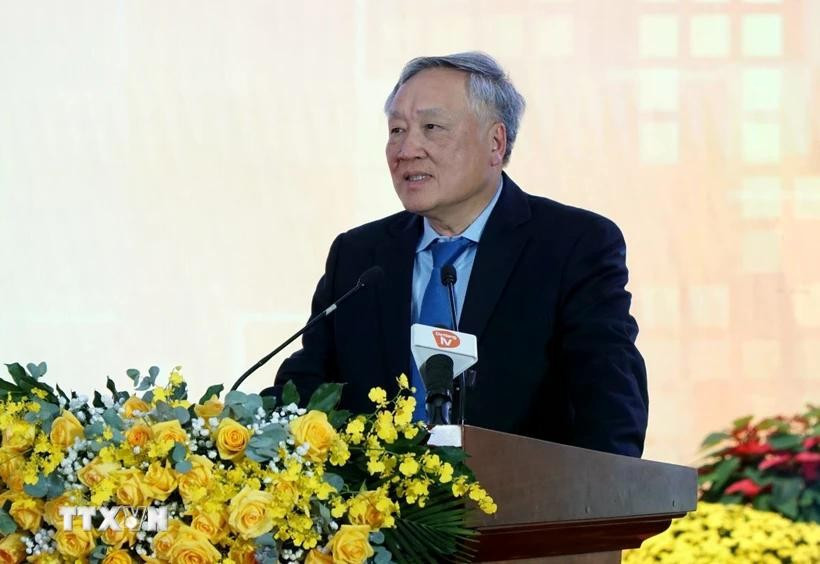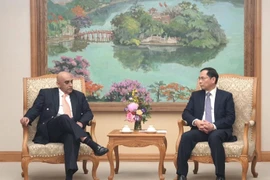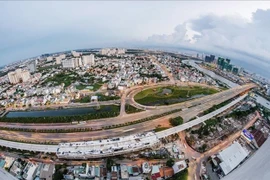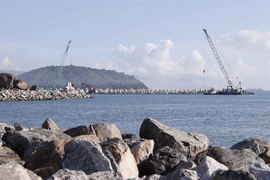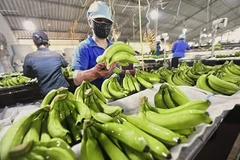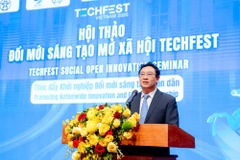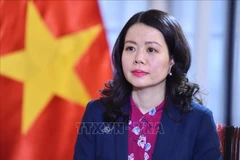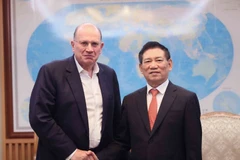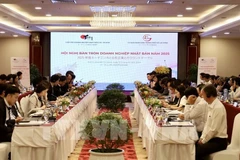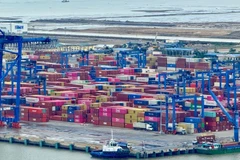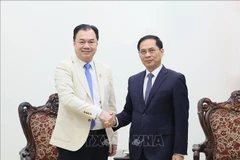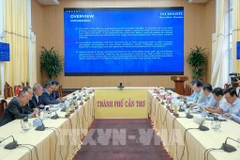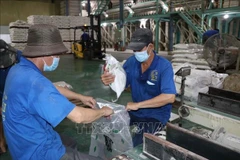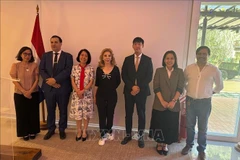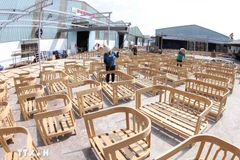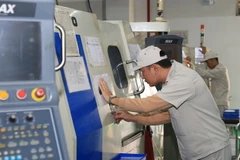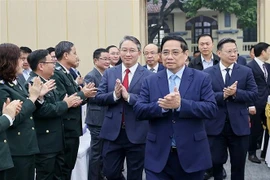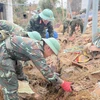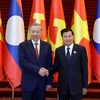Da Nang (VNA) - Permanent Deputy Prime Minister Nguyen Hoa Binh has demanded ministries, sectors, and localities to concentrate on five key tasks to make it easier for developing international financial centres in Vietnam.
Addressing a workshop in the central coastal city of Da Nang on January 16, Binh stated that the most important task is to finalise the legal system and preferential policies which are transparent, open, and conformable with international standards, saying that this will create favourable conditions for developing a comprehensive international financial centre in Ho Chi Minh City, and a regional financial centre in Da Nang.
He thanked both domestic and international speakers and experts for their accurate insights, practical research, and valuable suggestions in studying and forming these centres, saying that Vietnam will absorb these international experiences and suggestions to develop these facilities, thus boosting socio-economic growth.

Regarding human resources, Binh underlined the necessity to quickly train and send experts abroad to gain global practical experience, saying that this will ensure a sufficient supply of professionals in governance, operation, risk management, and dispute settlement in financial centres.
Ministries, sectors and localities must promptly complete infrastructure development and build a comprehensive ecosystem to serve the financial centres, he said, stressing that it is necessary to select the right development direction from the outset, that aligns with Vietnam’s conditions and orientations such as developing Fintech and Blockchain.
He urged international experts and investors to continue collaborating with Vietnam in connecting, mobilising, and attracting investment, aiming to quickly establish and develop the international financial centres in the country.
According to Chairman of the Ho Chi Minh City People’s Committee Phan Van Mai, the city is Vietnam’s leading financial service hub, with the highest rate of fintech technology adoption and a financial ecosystem that houses over 50% of fintech startups in the country. The southern hub also boasts a skilled workforce and highly qualified programmers at competitive costs compared to other countries in the region, giving it the potential to create distinctive products and advantages for an international financial centre.
He stressed that HCM City and Da Nang can capitalise on their unique local strengths to collaborate and support each other in developing the financial centres in the future.
Meanwhile, Vice Chairman of the Da Nang municipal People’s Committee Ho Ky Minh, the financial centre model in Da Nang will be a multi-component ecosystem, featuring international financial services; Fintech and TechFin services that offer software and application platforms for payment processing, cryptocurrency asset trading; services supporting investment and business development and utility services like auditing, accounting, legal and tax consulting, customs among others.
Da Nang has allocated two clean land plots with a total area of nearly 16 ha, in favourable locations with top-tier infrastructure connectivity in Vietnam, for setting up a mixed-use complex, high-end offices and resorts, and fintech service areas, he said.
International speakers and experts expressed their agreement and support for developing the financial centres in Da Nang and HCM City, saying that the cities possess distinct strengths and potential needed for the work.
According to Phan Duc Trung, President of the Vietnam Blockchain Association, the future financial centres will feature technology-driven transactions, aligning with the principles of Resolution 57-NQ/TW of the Politburo on breakthroughs in science, technology, innovation, and national digital transformation.
Promoting cross-border transactions in line with the Fintech trend represents innovation, helping reduce costs for financial activities and promote access to global customers, he added./.
